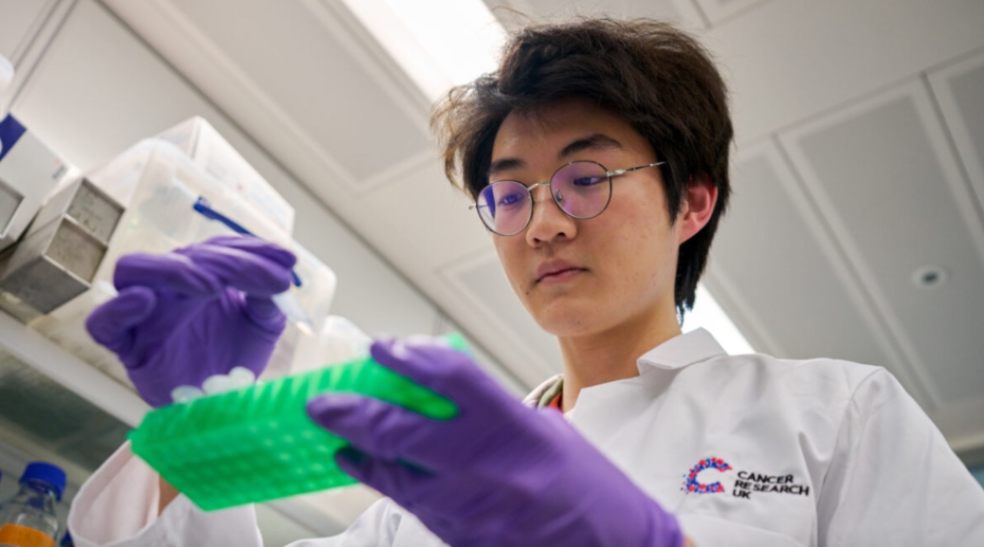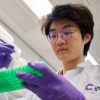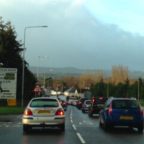
One Million Lives Saved from Cancer since the 1980s
Around 1.2 million deaths have been avoided in the UK since the mid-1980s due to advances in cancer prevention, diagnosis and treatment, according to new data from Cancer Research UK.
Over the last four decades, UK cancer mortality rates have fallen by around a quarter after peaking in 1985 for men and 1989 for women.
Had rates stayed the same, it is estimated that around 111,000 more lives would have been lost in the South West.
The figures have been released to coincide with the launch of the charity’s new campaign ‘Together We Are Beating Cancer’.
It aims to shine a light on the incalculable impact of such progress on people affected by the disease and their families.
The awareness and fundraising drive, that includes billboards and posters displayed across the South West, showcases the real and heartwarming moments such as big birthdays, anniversary celebrations, or simply quality time with loved ones, that research is making possible right now.
Cancer Research UK scientists are behind some of the biggest breakthroughs that have helped lead to falling mortality rates - from helping to prove the link between smoking and cancer and playing a role in around half of the world’s essential cancer drugs, to the development of radiotherapy and discovering cancer-causing genes.
Alison Birkett at Cancer Research UK who is spokesperson for the south west explains: “The fact that so many lives have been saved in the region over the last 40 years is testament to the power of research and, as a result, a huge number of people have been able to reach milestones in their life they didn’t think they’d see.
“Thanks to the generosity and commitment of our supporters, we’ve played a key role in this progress. Together, we are beating cancer - our research breakthroughs mean every day, people are being diagnosed earlier, have access to kinder and more effective treatments, and some cancers are prevented completely.
“As our new campaign shows, this all adds up to more moments with the people we love – moments that we need help to protect so that future generations can live, longer better lives, free from the fear of cancer.
“That’s why we’re calling on people in the South West to help us go further and faster in the fight against the disease.”
Cancer Research UK’s analysis is accompanied by the findings of a new YouGov survey it commissioned of over 2,000 UK cancer survivors, looking at the moments and milestones that matter to them. It found some 41% said that experiencing a particular milestone, life event or personal interaction became more important for them following their diagnosis.
And while 81% of the cancer survivors who responded had positive emotions about their life in the future, such as feeling hopeful or happy, for some of these their overall emotions were mixed.
Despite large strides forward, and a more positive outlook for many, cancer remains the number one cause of death in the UK. And not all cancer types have seen improvements. For several forms of the disease, such as liver, head and neck, and womb cancer, there have been increases in mortality rates in recent years.
Alison added: “Around 36,800 people are diagnosed with cancer every year in the South West – but sadly, not everyone diagnosed with the disease will reach key milestones in their life.
“By donating, fundraising, taking part in one of our Shine Night Walks, or volunteering at our shops, supporters across the region could fund new discoveries that will help more people reach the life-changing moment when their doctor says: ‘It’s gone.’”
Donate now at cruk.org/donate
As part of the campaign, people are also being invited to share their personal moments, either of their own cancer journey or that of a loved one, through a dedicated photo-wall and on social media by using #MoreMoments.
40 years of hope and progress
In this game-changing era for cancer research, it’s estimated that around 111,000 lives have been saved in the South West since the mid-1980s. Cancer types where there have been large improvements during this time, include:
|
Cancer |
Estimated lives saved in the South West |
Key reason |
|
Lung |
Around 54,500 |
Fewer people are smoking, after research part-funded by Cancer Research UK first proved that tobacco causes cancer in the 1950s. Overall, the fall in cancer death rates has been steeper in men than women, mainly due to smoking rates starting to fall earlier in men. This means the UK is yet to see the full improvements in cancer death rates in women. |
|
Stomach |
Around |
Cases and deaths have fallen substantially in recent decades because H Pylori, a type of infection, is no longer common. |
|
Bowel |
Around 22,000 |
Huge progress in treatments for the disease, including the Cancer Research UK-funded FOxTROT trial, which discovered that giving patients chemotherapy before surgery helped to shrink tumours, making them easier to remove. |
|
Breast |
Around |
The introduction of the national screening programme in 1988, as well as drug developments like tamoxifen and Herceptin which Cancer Research UK helped to develop that have saved lives.
Three out of four people who receive cancer drugs on the NHS are receiving treatments which have links to the charity. |
Last year, Cancer Research UK spent nearly £3 million in the South West on some of the UK’s leading scientific and clinical research.
The charity is urging people to get behind the ‘Together We Are Beating Cancer’ campaign and help fund more life-saving research by:
- Donating or fundraising
- Joining a Shine Night Walk including the Bristol event on 15 September in Bristol departing from Lloyds Ampitheatre.
- Volunteering at a Cancer Research UK shop
You can make a donation at: cruk.org/donate.



















